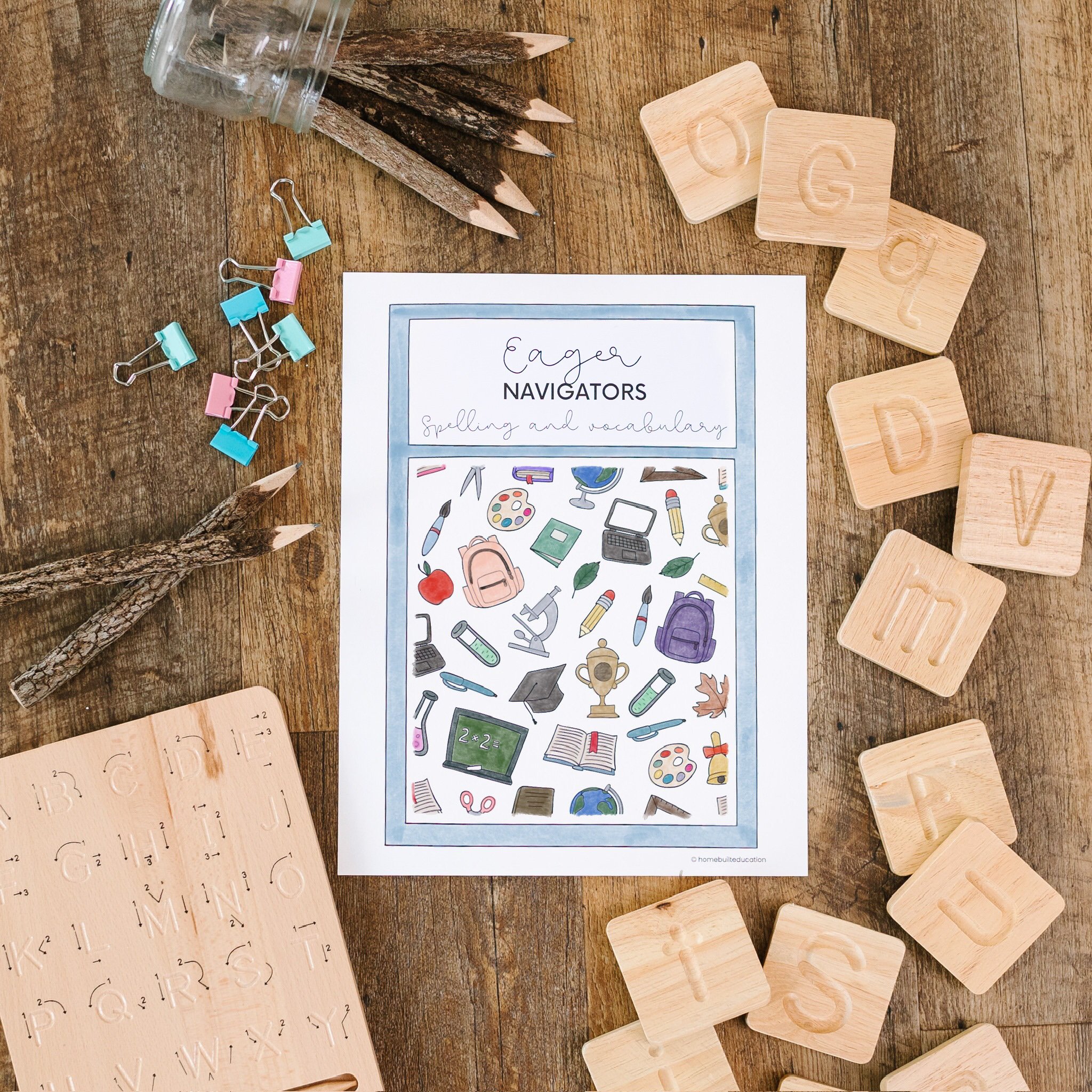The Cornerstone of Literacy: Emphasizing Spelling in Early Education
Disclosure: This page contains affiliate links. If you click on these links and make a purchase, I may receive a commission at no additional cost to you. This helps support my work in bringing you valuable content. Thank you for your support!
As a former school principal turned homeschool mom, I've observed firsthand the transformative power of spelling in the realm of early literacy development. Spelling, often overshadowed by more glamorous aspects of education, is indeed a foundational skill that supports not just reading and writing, but the very essence of communication and critical thinking in young learners. Together we will explore opportunities for spelling focuses in early education, emphasizing spelling strategies as we dig deeper.
The Integral Role of Emphasizing Spelling in Early Education
Understanding the intricacies of spelling goes beyond memorizing letter sequences; it's about connecting sounds with symbols and unlocking the code of language. This skill is crucial for developing fluency in reading, widening vocabulary, enhancing writing clarity, and fostering a deeper comprehension of text. It serves as the scaffolding upon which children can build their language skills, enabling them to decode new words, articulate thoughts, and engage with diverse forms of literature.
Cognitive Development Through Emphasizing Spelling
Spelling is not merely an academic task but a cognitive one, engaging children's brains in unique ways. As they learn to spell, they're also learning to recognize patterns, build memory, and develop analytical skills. This engagement strengthens their cognitive abilities, preparing them for more advanced literacy challenges. It’s a testament to the idea that mastering spelling can have a profound impact on a child’s overall intellectual growth.
Challenges and Strategies in Spelling Instruction
The English language, with its blend of phonetics and exceptions, presents a unique challenge to educators and learners alike. Overcoming these hurdles requires a multifaceted approach that goes beyond rote memorization. Effective spelling instruction should incorporate an exploration of phonics, word structures, and even the origins of words to build a deeper understanding of English. Activities that encourage manipulation and investigation of words can make learning both engaging and effective.
Supporting spelling at home is equally important. Simple, everyday activities like reading together, playing word games, and encouraging writing for various purposes can significantly enhance a child’s spelling skills. Moreover, in this digital age where autocorrect is ubiquitous, teaching children the value of correct spelling is crucial for clear, professional future communication.
NEW Resource to Explore in my Shop
To aid parents and educators in this endeavor, I’m excited to introduce my latest spelling resources designed specifically for children aged 3-5, 6-8, and 9-11. These tools aim to make spelling practice not just educational but fun and interactive, using the latest learning strategies to cater to young learners. Find your children’s level HERE:
Sprouts Spelling Bundle- Spelling and Phonics (ages 3-5)
In this spelling and phonics collection, you will find 52 pages focused on letter sounds, spelling practice, and complemented by identification and tracing activities (recommended ages 3-5).
Each activity page is crafted to guide children through letter recognition and writing. Beginning with a detailed letter writing guide, the journey continues with colorful sound identification activities, tracing practice to build confidence, and ample space for independent writing. This approach not only introduces foundational spelling skills but also supports early phonetic understanding and word decoding.
Dive into spelling exploration with the Sprouts Spelling Bundle, where early literacy development is both fun and rewarding.
Explorers Spelling Bundle- Glued Sounds (Ages 6-8)
In this spelling bundle, you will find 42 pages of practice that focus on the development and understanding of glued sounds, digraphs, and trick words (recommended ages 6-8).
Glued sounds and digraphs are an essential skill in building your your child's reading and writing toolkit. Recognizing these sounds in writing, aids in decoding when beginning to read. This is a critical phonetic skill as children begin to progress, and recognizing these spelling patterns can help in building confidence and achievement in reading. 100 trick words are also included in this bundle. Trick words are words that cannot be phonetically decoded (although there are some rule breakers), which makes spelling practice for word recognition and retention even more pertinent. The familiar and recognizable pattern of these resource will help you and your child begin to tackle spelling words together!
Navigators Spelling Bundle - Advanced Phonics and Vocabulary (ages 9-11)
Discover 125 pages of spelling and vocabulary practice to enhance reading fluency and writing precision (recommended ages 9-11).
The Navigators Spelling Bundle includes 16 spelling lists emphasizing complex phonics, tricky patterns, and high-frequency vocabulary. It features 9 lists of essential trick words and 6 lists of category words common across various subjects, aimed at bolstering understanding and mastery. With 106 pages focused on vocabulary development, learners are prompted to define, illustrate, and construct sentences with new words. Offered in an editable format for tailored learning experiences, this bundle is an essential resource for fostering academic growth and confidence.
By prioritizing spelling instruction and engaging children in meaningful practice, we unlock their potential for deeper learning, critical thinking, and effective communication. Let's embrace the challenge and joy of teaching spelling, watching as our young learners flourish into confident readers and writers.
Xoxo,
Mandy





